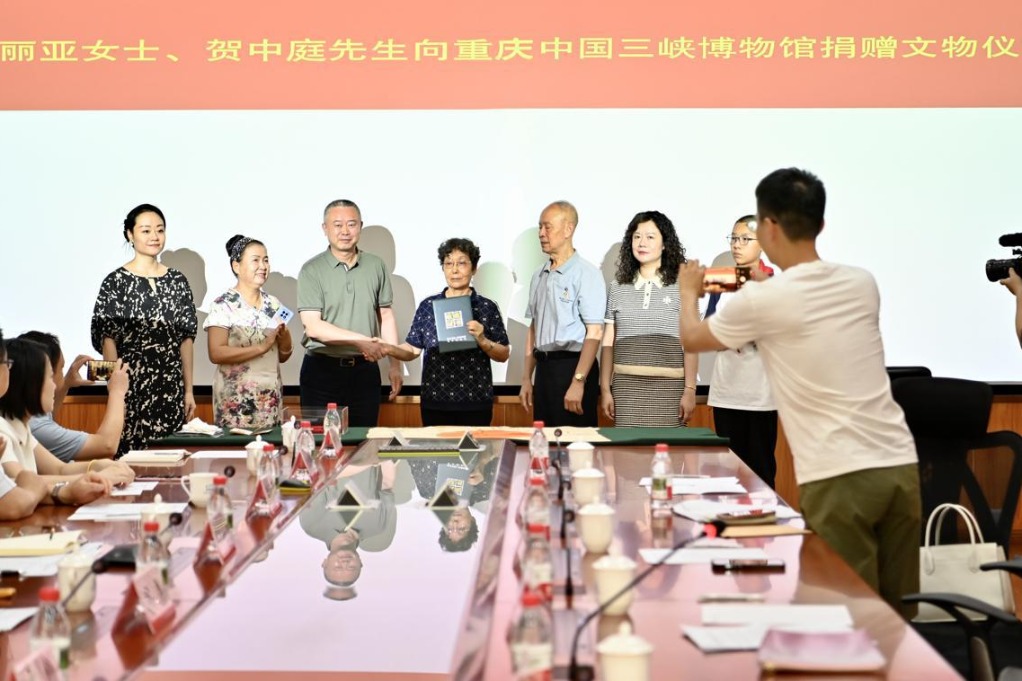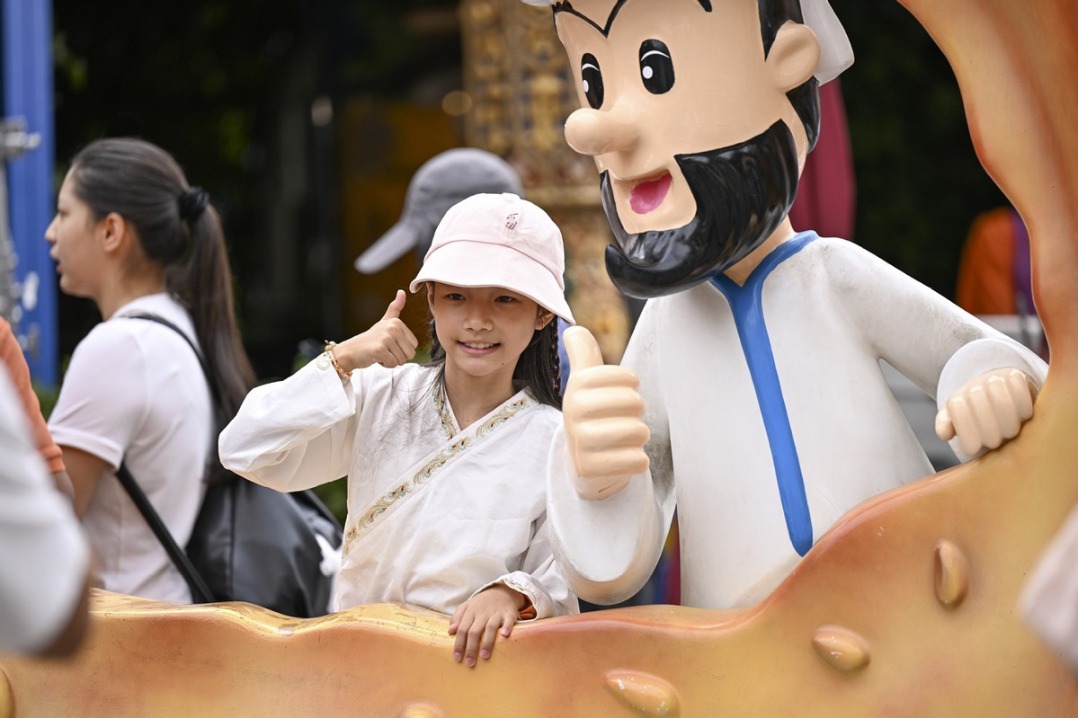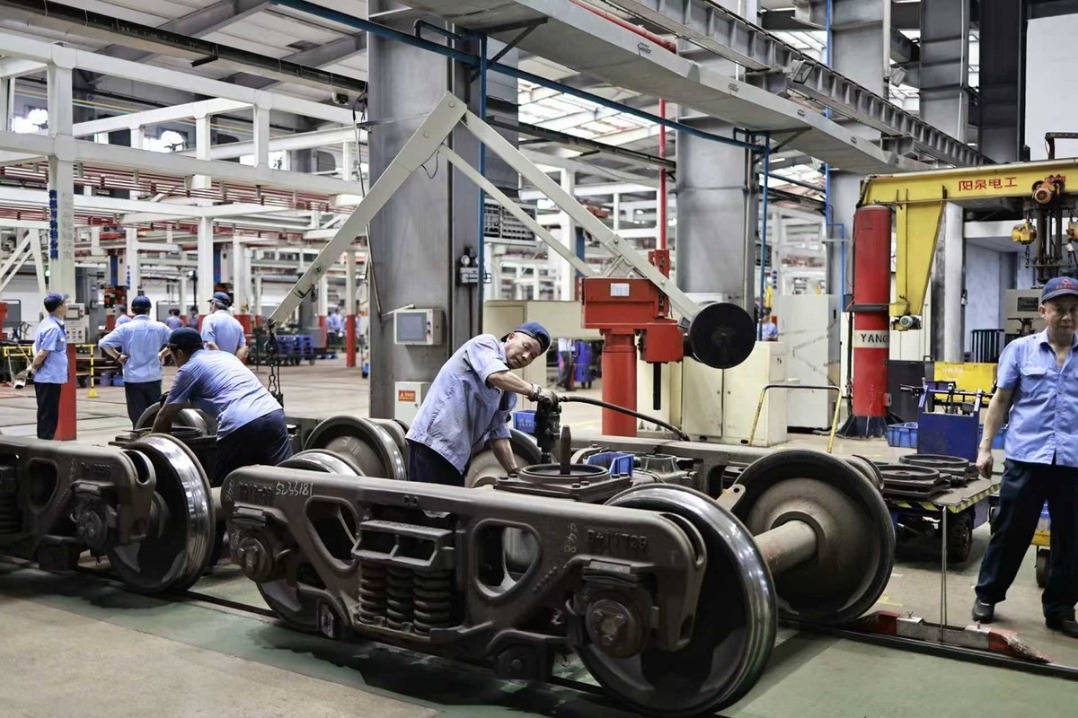Fighting for motherland: Taiwan volunteers in China's WWII resistance against Japanese aggression

TAIPEI/BEIJING -- On the occasion of the 80th anniversary of the victory in the Chinese People's War of Resistance Against Japanese Aggression, original documents detailing a special task force from Taiwan have been added to the latest national documentary heritage list.
The 625 documents reveal moving stories of a group of volunteers from Taiwan, then under Japanese colonial rule, fighting against the Japanese on the mainland. Their founder, General Lee You-pang, exemplifies the struggle of people in colonized Taiwan striving to return to their motherland.
In Luzhou District of New Taipei City, where Lee You-pang was born, visitors to his former residence are greeted by bronze statues of the general and his wife, Yen Hsiu-feng, at the entrance. The statues rest atop a black stone base engraved with two red Chinese characters: "Fu Jiang."
"Fu means 'restoration,' and Jiang means 'territory,' which refers specifically to Taiwan," explained 80-year-old Lee Li-chun, son of You-pang. "These words capture my father's lifelong commitment to the restoration of Taiwan to the motherland."
Lee You-pang was born in 1906 into a respectable family whose ancestors had migrated to Taiwan from Fujian province, just across the Taiwan Strait.
By then, Taiwan had been under Japanese colonial rule for a decade. In 1895, following its defeat in a war with Japan, the Qing government was forced to cede Taiwan to the Japanese.
"From a young age, my father had a strong sense of being Chinese and felt deep anger at the discrimination and exploitation that the people of Taiwan endured under Japanese colonial rule," Lee Li-chun said.
At 16, while studying at a normal school, Lee You-pang joined a cultural association in Taiwan and actively took part in efforts opposing Japanese colonial rule. He participated twice in attacks on Japanese police stations, putting him on the Japanese colonial authorities' wanted list. In 1924, he left for the mainland to enroll at the Huangpu (Whampoa) Military Academy in Guangzhou.
After Japan launched a full-scale invasion of China in 1937, Lee, convinced that Taiwan's fate was tied to the motherland, founded the Taiwan volunteer corps and the Taiwan youth league in Jinhua, Zhejiang province, in February 1939.
The Taiwan volunteer corps began with just over 30 members and grew to more than 380 by 1945, playing an active role along the frontlines in Zhejiang and Fujian and contributing to the resistance in various fields, including publicity, medical support and productive services.
As many members were doctors, Lee You-pang made medical work one of their priorities. He established four hospitals to treat wounded soldiers and civilians.
Since 1895, the people of Taiwan have continuously resisted colonial oppression and fought for reunification with the motherland, with more than 650,000 sacrificing their lives.
Official data show that between 1937 and 1945, more than 50,000 Taiwan patriots went to the mainland to join the war of resistance against Japanese aggression.
China's victory ended Japan's colonial rule in Taiwan. On Oct 25, 1945, the Chinese government announced that it was resuming the exercise of sovereignty over Taiwan, and the ceremony to accept Japan's surrender in the Taiwan province of the China war theater of the Allied powers was held in Taipei.
In 1985, Yen Hsiu-feng, on behalf of all descendants of the Lee family in Luzhou, donated the family's ancestral home as a public venue honoring Lee You-pang's contributions to the war of resistance against Japanese aggression. It later became a key site commemorating Taiwan people's resistance against Japanese aggression.
Lee Li-chun also donated all of his father's archives, and to this day, the 80-year-old remains actively involved in cross-Strait exchanges, sharing with people on both sides the heroic stories of his father's generation.
However, this important chapter of history is being deliberately downplayed by Taiwan's Democratic Progressive Party authorities, who seek to promote a secessionist interpretation of the past.
"Nowadays, many young people in Taiwan are not even familiar with the term 'anti-Japanese war.' This is deeply painful," Lee Li-chun said. "I hope that more people will come to know this chapter of history, when compatriots on both sides of the Strait stood shoulder to shoulder in order to defend their homeland."
Lee Li-chun can still sing the song of the team his father founded: "We are volunteers fighting the Japanese and the vanguard of Taiwan's liberation. We shall expel the Japanese invaders from our motherland and break the shackles they locked on Taiwan."
- Fighting for motherland: Taiwan volunteers in China's WWII resistance against Japanese aggression
- Death toll rises to 12 in NW China bridge construction accident
- Chairwoman of Inner Mongolia under investigation
- From guerrilla fighter to civilian, a life recalled
- Scotland to Yangzhou: Football in a timeless ancient city
- Rare Japanese war flag donated to Chongqing museum





































